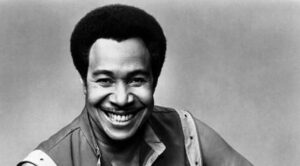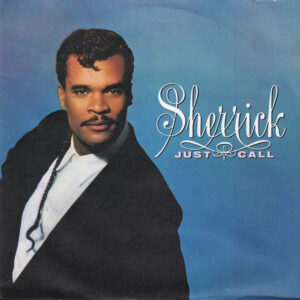Brian Owens & the Deacons of Soul – Soul of Ferguson
Most Americans did not know about Ferguson, Missouri until that tragic day in the summer of 2014 when Michael Brown was fatally shot during an altercation with a city police officer. Now, everything that we know about that city is filtered through the lens of the tense and often dysfunctional relationship that the town’s largely black population has with the police department and the city government. The Brown shooting became a part of a long line of fatal confrontations between African-Americans – often but not always young, often but not always male – that gave rise to the Black Lives Matter movement and, as is often the case in race relations, a counter movement (or backlash).
However, Ferguson, Missouri is more than news dateline for stories about confrontations pitting the police department and city government against the town’s majority black population. The town is also the place that people of diverse races and backgrounds call home, and Ferguson has made contributions to the American art form known as soul music through the power packed voices of Brian Owens and Michael McDonald.
Most fans of soul, pop and rock know the latter name as the lead singer of the Doobie Brothers in the mid and late 1970s. His soul drenched baritone placed McDonald among the many artists who provided the musical soundtrack of the 1980s on solo efforts such as “I Keep Forgetting,” as well as his duet with Patti LaBelle on “On My Own.” McDonald is a guest vocalist on Soul of Ferguson, the project by another son of Ferguson, Brian Owens and his Deacons of Soul.
Owens is a longtime Ferguson resident and his deep connections are revealed in the efforts he leads to help the town’s youth and to heal the community. Owens honed his musical identity by singing in the church, even as he was influenced by artists ranging from Sam Cooke and Curtis Mayfield – two church rooted soul men whose spirit can be heard throughout Soul of Ferguson – jazz singers such as Nat King Cole and even country legends like Johnny Cash.
Owens wrote eight of Soul of Ferguson’s nine tracks, with the Deacons of Soul band members writing “Benediction,” a soulful track drenched in the sanctified blues and harmonic moans and hums of the black church. Owens and McDonald pair up on “For You,” a rousing number that – like many of the best tunes in the soul music canon – totally obliterate the line between sacred and worldly. Owens and McDonald never say Jesus or girl or baby. However, lyrics that speak of a person’s total sacrifice to that true love give the “For You” ability to work either way.
Like Mayfield, there is always an element of worship and devotion whenever Owens lifts his sweet tenor in song. That is the case whether Owens is singing “Pretty Fine Thing,” a number that recounts the true story of how he met his wife, or expression his joy of being alive on “Beautiful Day,” a track that most closely channels Impressions era Mayfield in instrumental arrangement, vocal delivery and theme. The same can be said of his testifying on “When a Grown Man Cries,” a number that features Stax-infused horns and Owens’ messaging that explore the range of circumstances and emotions that might bring tears to a man’s eyes. “The other day, ohh, I watched my little boy become a man/Then later on got a call in the middle of the night/From my momma/Saying, son your daddy’s gone/Can you help me stand.”
The events that transpired in Ferguson and other points in this nation must have been strong on Owens’ mind when he wrote “Prayer for My Children,” a track that channels Gaye’s “What’s Going On,” both in the theme of love and concern for his and the world’s youth — and in the harmonized backing vocals and languid tenor sax that both seem to respond like a choir talking back to Owens as he preaches.
There has been a wealth of artists looking to the instruments and production values and techniques of the past to speak to listeners in the present tense. And yes, there will be a temptation to place this music, with its decidedly analog virtues, in museum as some kind of musical artifact. But then you hear Owens and McDonald, these two sons of Ferguson – one black and one white – working it out and you realized that music – especially good music – always retains the power to surmount, at least for those few magical moments, the barriers humans often erect. Recommended.
By Howard Dukes










